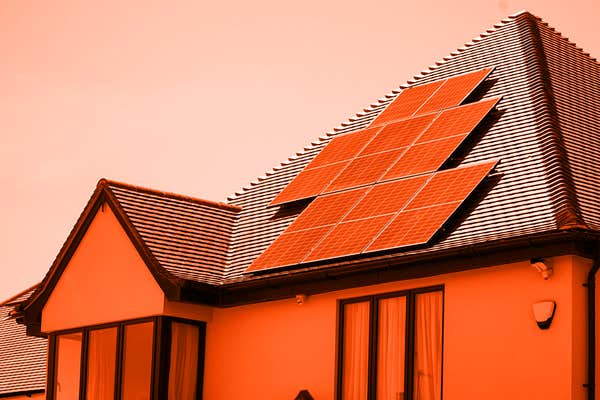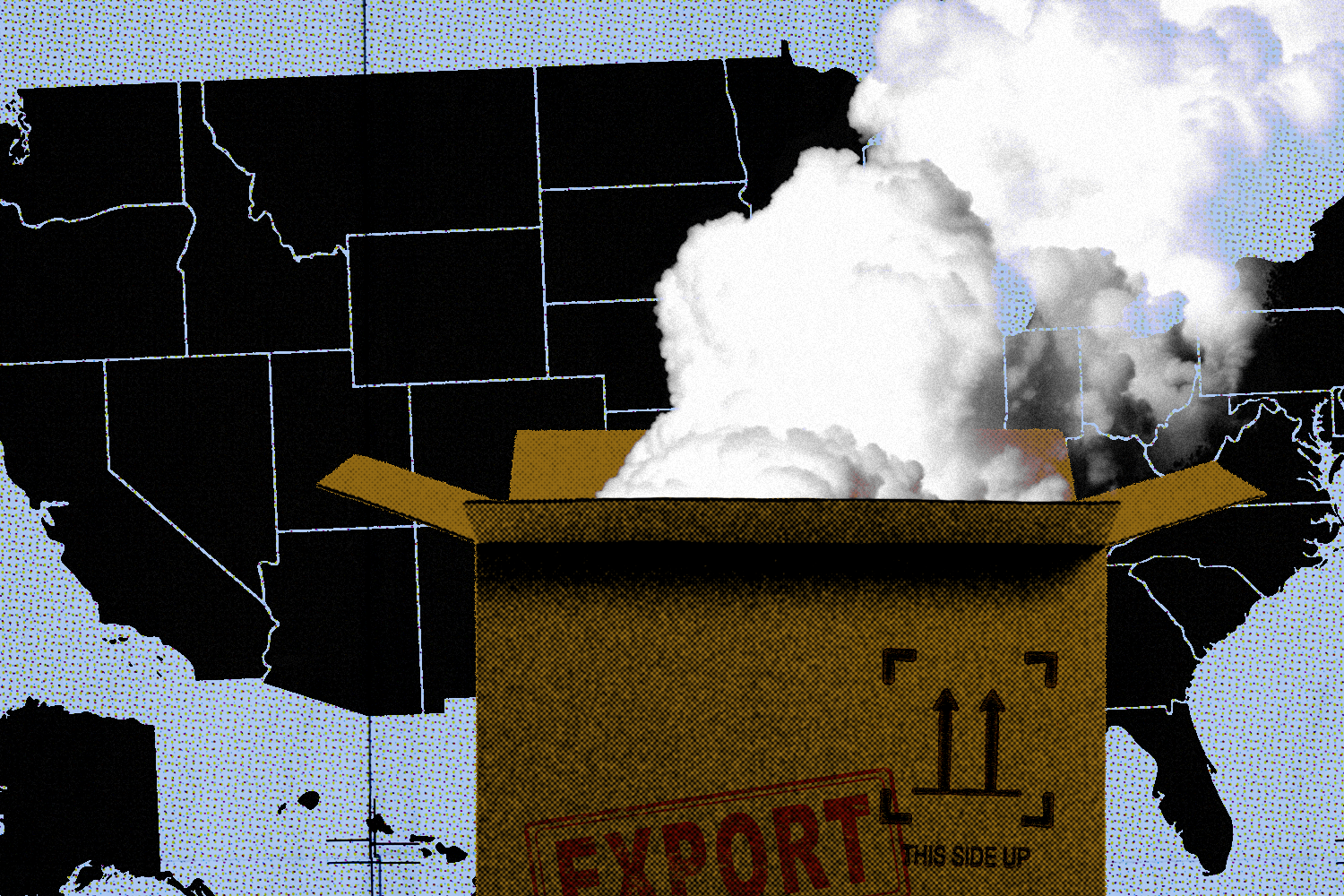
May 19th, 2025
Hey team, and welcome back to one5c! Every now and again, I look at the lineup of stories in one of our newsletters and think “we’re really playing the hits today.” The headlines can feel like a spin cycle churning up the same things again and again, but there’s also beauty in repetition: Not only does it remind us of the forces we’re working to change but also that we do have the power to change them. Whether it’s Congress taking a whack at climate laws, Big Oil tamping down action, or the world’s largest soda company drowning us in plastic, it’s not escaping our notice. Here’s to staying sharp. —Corinne
WHAT WE’RE INTO THIS WEEK
By Sara Kiley Watson and Audrey Chan

Action alert
Help protect the U.S.’s biggest climate law
The Inflation Reduction Act (IRA) is the most important national climate policy ever put on the books in the U.S. The groundbreaking plan includes incentives to help individuals invest in EVs, solar panels, and efficiency improvements like heat pumps, as well as huge investments in clean energy infrastructure that bolstered economies in both red and blue states. Congress’ proposed new budget includes myriad cuts to IRA programs. But there’s still time to push back: Republican senators are balking at the House’s proposal, which means it’s time to speak up: Head over to 5Calls for a script you can read to your reps to let them know you want them to defend the climate investments. Once you’ve done that, you can move on to any just-in-case to-dos: If you’ve been keen to put solar panels on your roof, now is a good time to start that process. We also have a guide to all the benefits and tax rebates you can get while the IRA stands.
Consume this
Cacao takes a sustainable twist
When most people hear “cacao,” they think chocolate. But traditional chocolate production uses only the beans, leaving the rest of the plant—the pulp and husk—to pile up and burp planet-heating methane as it breaks down. That waste, coupled with deforestation, drives up chocolate’s carbon footprint to make it one of the most-emitting foods around. Blue Stripes, a snack company sourcing cacao pods from Ecuador, is making use of those forgotten parts, Caroline Saunders reports for Grist. The company upcycles pulp into chocolate bars, drinks, and other snacks. CEO and founder Oded Brenner says the company’s purchase of these overlooked ingredients boosted farmers’ earnings by $1.5 million between 2022 and 2024. But scaling up will depend on if consumers—especially those in the U.S.—can get on board with a new kind of sweet treat.
Report card
A definitive guide to Big Oil’s climate denial
If you need a 101 course or a refresher on the role fossil-fuel firms have played in creating, covering up, and evading responsibility for the climate crisis, the Union of Concerned Scientists’ scathing new Decades of Deceit report is a must-read. Drawing on internal documents and court records, the watchdog lays out how companies like ExxonMobil knew as early as the 1950s that their products were dangerously heating the planet, but chose to bury that research, fund denial campaigns, sow doubt in science, and block climate action. Fast-forward to 2024, when interests poured an estimated $96 million into the Trump campaign, effectively funding an administration that’s working to block state-level lawsuits that could hold companies accountable. As fossil-fuel giants push for immunity, the report’s authors urge Congress to “do everything in its power to ensure such an effort does not succeed.” You can download the full 58-page report here, or for a speedier overview, the executive summary gets the point across in two.
Greenwatch
Coca-Cola is updating its misleading recycling stamps
One of the world’s biggest plastic polluters, Coca-Cola, is walking back some of its inflated recycling claims after the European Consumer Organisation called out the beverage giant’s “100% recycled” labels as greenwashing. Coke will now clarify that only the body of its plastic vessels is 100% recycled material—not the cap or label. It will also drop the green imagery of a closed recycling loop that has been flagged as promoting “the false idea of environmental neutrality.” The swaps don’t stop there: The current “Recycle me again” stamp is getting traded for a more realistic “Recycle me.” These tweaks follow a 2023 complaint from consumer groups across 13 European countries targeting misleading environmental claims from Coca-Cola, Danone, Nestlé Waters/Nestlé, and others.
Product Review
The best countertop composter
Don’t have room for a compost pile? These minis can gobble up your food waste. Read the full review.

CLIMATE SPEAK
‘Pollution offshoring,’ explained
By Tyler Santora

Countries are racing to slash their carbon emissions. Norway, for instance, is on track to halve its footprint by 2030. To hit such ambitious targets, nations take on all manner of efforts, from large-scale renewable installations to electrified transportation, but progress might not always be as perfectly green as it seems.
Rich nations cutting emissions have a tendency to shift some of their polluting activities to poor locales. This transfer is called “pollution offshoring,” and it doesn’t reduce the amount of greenhouse gases entering the atmosphere worldwide. What it does do is make wealthy countries look like they have better records than they really do, according to a new study published in the journal PLOS Climate.
Of course unraveling this is more complex than rebalancing a spreadsheet. Here’s what to understand about pollution offshoring—and what we can do to slow its roll.
What is pollution offshoring?
There are essentially two flavors of pollution offshoring. The first occurs when wealthy nations avoid manufacturing products that create a lot of pollution at home and instead import them from poorer territories that have laxer environmental regulations. Rich countries get stuff, and the poor ones get failing grades on their climate report cards. (Singapore, for instance, buys its cement and steel from developing economies like Indonesia, Malaysia, and Thailand.) This also concentrates harmful pollution in countries like China, India, Brazil, Chile, and the Philippines—places that are already bearing the brunt of the impacts of the climate crisis.
The other side of offshoring happens when the developed world sends its scraps abroad. For example: Great Britain sends used cars that are no longer roadworthy to low- and middle-income countries. And of course there’s also the literal mountains of fast fashion waste that wind up in the developing world.
This balance-sheet shifting has existed since the late 20th century, and it isn’t necessarily driven by a malicious desire to look greener as much as it is by economics. In many cases, it’s just cheaper to produce goods elsewhere. In the United States, things picked up around the 1970s with an increase in outsourced electronics manufacturing to places like Japan. The U.S. financial crash of the 1980s solidified the shift.
Even so, this behavior can be harmful for both the planet and the bottom line. According to a 2020 report from the Reshoring Institute, a nonpartisan nonprofit, financial gains evaporate when you account for the costs of climate-fueled disasters.
What you can do
Pollution offshoring is so intertwined in the workings of the global economy that righting the imbalance is complex. As individuals, the biggest thing we can do is work to decrease demand, which means, yes, buying less new stuff—particularly items whose manufacturing is heavily polluting, like electronics and cars. When a real need arises, opt for secondhand or items made locally. There are loads of resources available to find U.S.-made goods such as AmericansWorking.com, this guide from Authenticity50, and the Made Index. (And for anyone wondering: Buying local doesn’t automatically mean you’re hurting distant economies.)
The other to-do item is to keep your ears open for when trade policy hits the political to-do list. For example, the 2020 United States-Mexico-Canada Agreement does theoretically introduce some environmental protections, but most experts believe it can do more to address climate change impacts. When it comes up for federal review this year, we’ll keep an eye out for when your calls and emails to experts will be most needed.
MIC-DROP CLIMATE STAT
1.6%
The year-over-year drop in China’s emissions compared to the first quarter of 2024, according to Carbon Brief. The power sector saw an even higher 2% decline.
Copyright © 2025 one5c. All rights reserved.
Logo design by Claudia De Almeida
Questions? Feedback? Contact the editors at one5c@one5c.com.
Our mailing address is:
3112 Windsor Rd, Ste A-391, Austin, TX 78703
